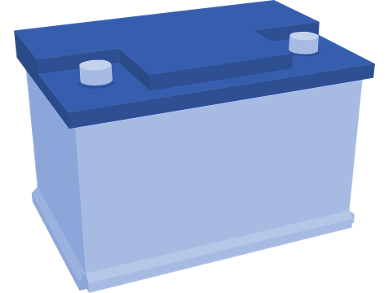800,000 t of lead are produced from spent batteries each year in Africa. According to the “Lead Recycling Africa Project” by the non-profit association Öko-Institute (Institute for Applied Ecology), Freiburg, Germany, and partners in Ethiopia, Cameroon, Kenya, and Tanzania, working conditions in many lead smelters in Africa are catastrophic [1].
Scrap dealers sell car batteries to suppliers for lead smelters. Batteries without acid bring more money, so the traders pour the sulfuric acid on the road or in backyards – with the lead dissolved or dispersed in the acid. In the lead smelters, the worker open the batteries, remove the lead as well as lead oxide and reduce the lead oxide with wood charcoal or oil to elemental lead. They then pour the liquid heavy metal into bars. Such crude lead contains about 3 % impurities, including tin and antimony. It is purified in refineries in other parts of the world.
Many lead smelters lack even basic precautionary measures to prevent the emission of lead and battery acid to the workspace and the environment. Many workers as well as doctors do not know that lead is toxic. A study on workers in Ghana found an average of 1460 μg L–1 lead in the blood of the workers. The World Health Organization (WHO) recommends 100 μg L–1 as the maximum value. Accordingly, a lead concentration above 150 μg L–1 inhibits enzymes for the formation of blood. Even the families and acquaintances of the workers are suffering from lead poisoning. The dusts reaches them via the clothes of the workers. Moreover, lead smelters are in densely populated areas.
Andreas Manhart, Öko-Institute, and colleagues from the Lead Recycling Africa Project want to improve the situation by education and pressure on the authorities. In their opinion, simple means would already make a great difference: work clothes, facial masks, showers, canteens, the possibility to wash hands, and regular advice to the workers to drink a lot.
In addition, they recommend that producers of batteries, vehicles, and power systems should make sure to source solely from facilities and supply chains that implement best available technologies for battery recycling and lead processing.
- Bleivergiftung inklusive, (German only)
Brigitte Osterath,
Nachr. Chem. 2016, 64 (10), 1072–1074.
DOI: 10.1002/nadc.20164054748
[1] The deadly business, Findings from the Lead Recycling Africa Projects,
Andreas Manhart (Oeko-Institut e.V.), Tadesse Amera (PAN-Ethiopia), Gilbert Kuepouo (CREPD-Cameroon), Diana Mathai (CJGEA-Kenya), Silvani Mng’anya (AGENDA-Tanzania), Tobias Schleicher (Oeko-Institut e.V.),
Oeko-Institut e.V., Freiburg, Germany, May 2016.
Also of Interest
- The World’s Worst Pollution Problems: Assessing Health Risks at Hazardous Waste Sites,
Blacksmith Institute, New York, NY, USA, and Green Cross Switzerland, Zurich, Switzerland, 2012.




